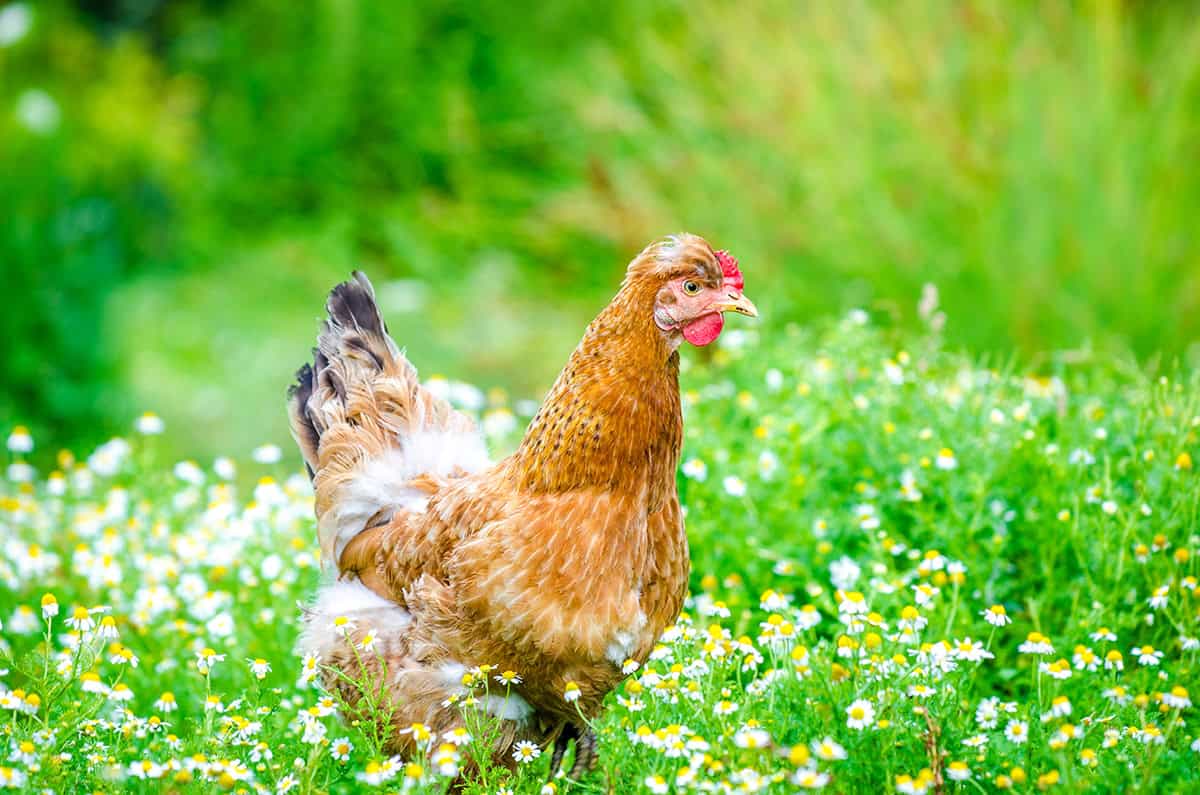A chicken run doesn’t have to be all mud and wire. Add the right plants, and suddenly you’ve got shade, snacks, pest control, and even a prettier view. These 32 chicken-friendly picks are more than decorative—they’re practical and low-fuss too.
Table of Contents
Edible & Nutritious Plants
Incorporating certain plants in a chicken run can enhance the nutrition of your flock. Each plant offers specific benefits and can improve the overall health and well-being of your chickens.
Clover
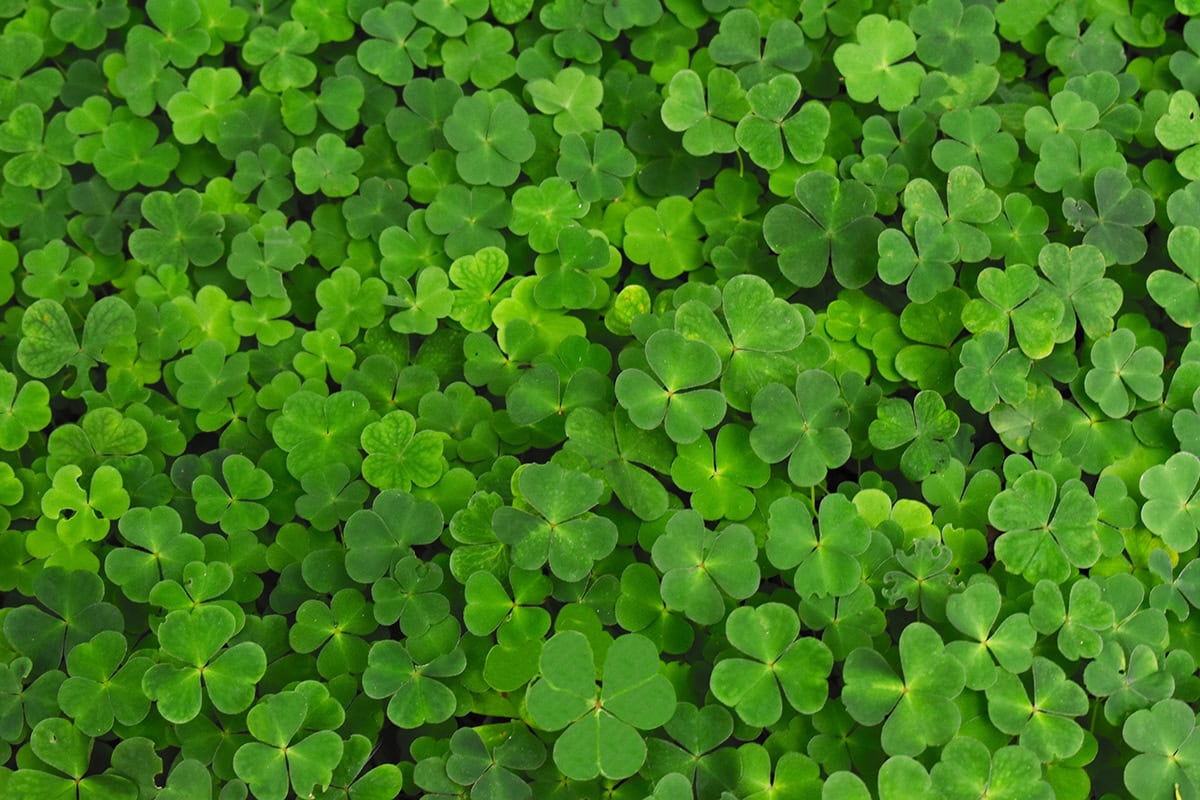
Clover is a powerhouse of nutrients. It is rich in protein, vitamins, and minerals. Chickens love foraging on clover as it is tender and lush. The leaves offer high levels of calcium and other essential nutrients, supporting egg production. Clover also helps maintain soil health by fixing nitrogen. Planting clover in your chicken run provides a sustainable and nutritious food source.
Dandelion
Dandelions are more than just weeds. They pack a nutritious punch for chickens. Their leaves are full of vitamins A, C, and K, promoting good health. Dandelions aid digestion and provide antioxidants. Chickens are naturally inclined to eat dandelions, favoring the tender leaves and flowers. They can be grown easily and periodical trimming encourages more growth.
Alfalfa
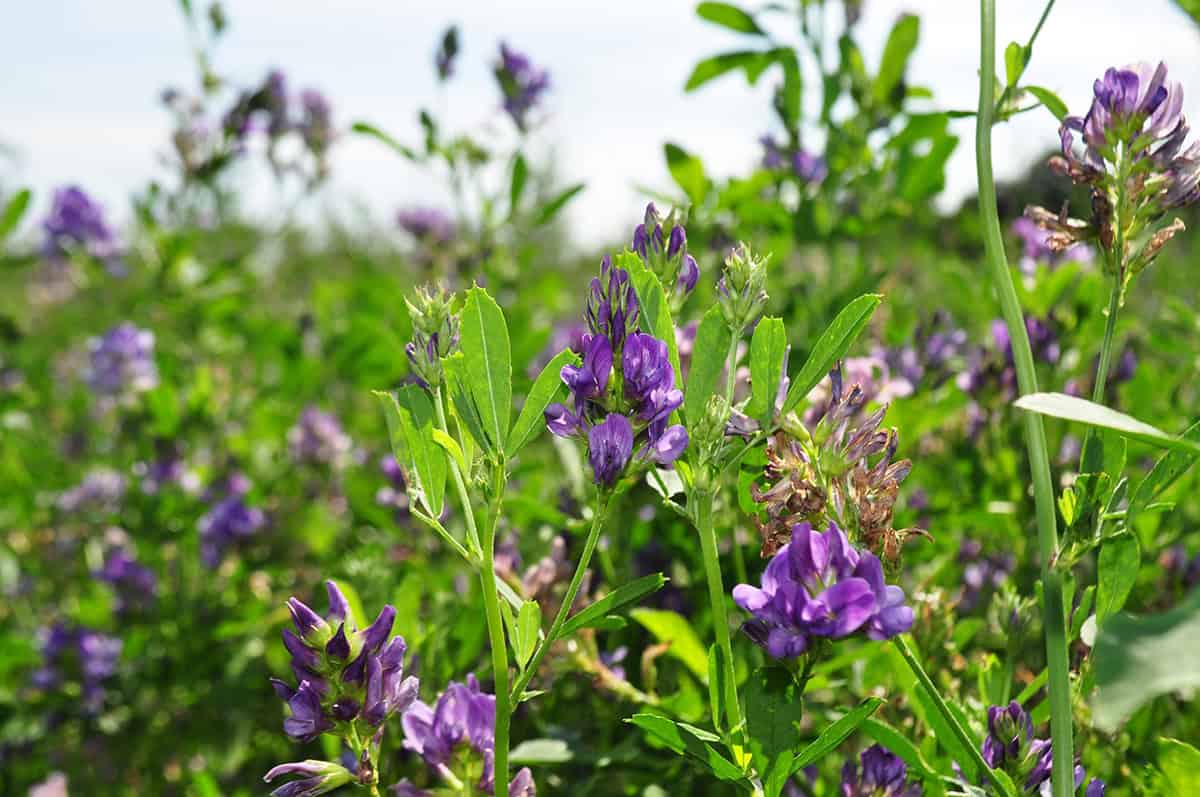
Alfalfa is an excellent source of protein and fiber. It supports healthy digestion and boosts the immune systems of your chickens. The plant is packed with essential vitamins and minerals. Alfalfa sprouts are particularly beneficial. They are tender and nutritious, especially when foraged fresh. Growing alfalfa requires adequate sunlight and space but is well worth the effort for nutritious bird feed.
Sorrel
Rich in vitamin C, sorrel enhances your chickens’ immune health. Its tangy leaves offer a refreshing change in their diet. Sorrel also contains oxalic acid, imparting a slightly sour taste. While it is beneficial, limit its intake to prevent digestive issues in your flock. With its quick-growing nature, sorrel can be a steady source of nutrition.
Plantain (Plantago Major)
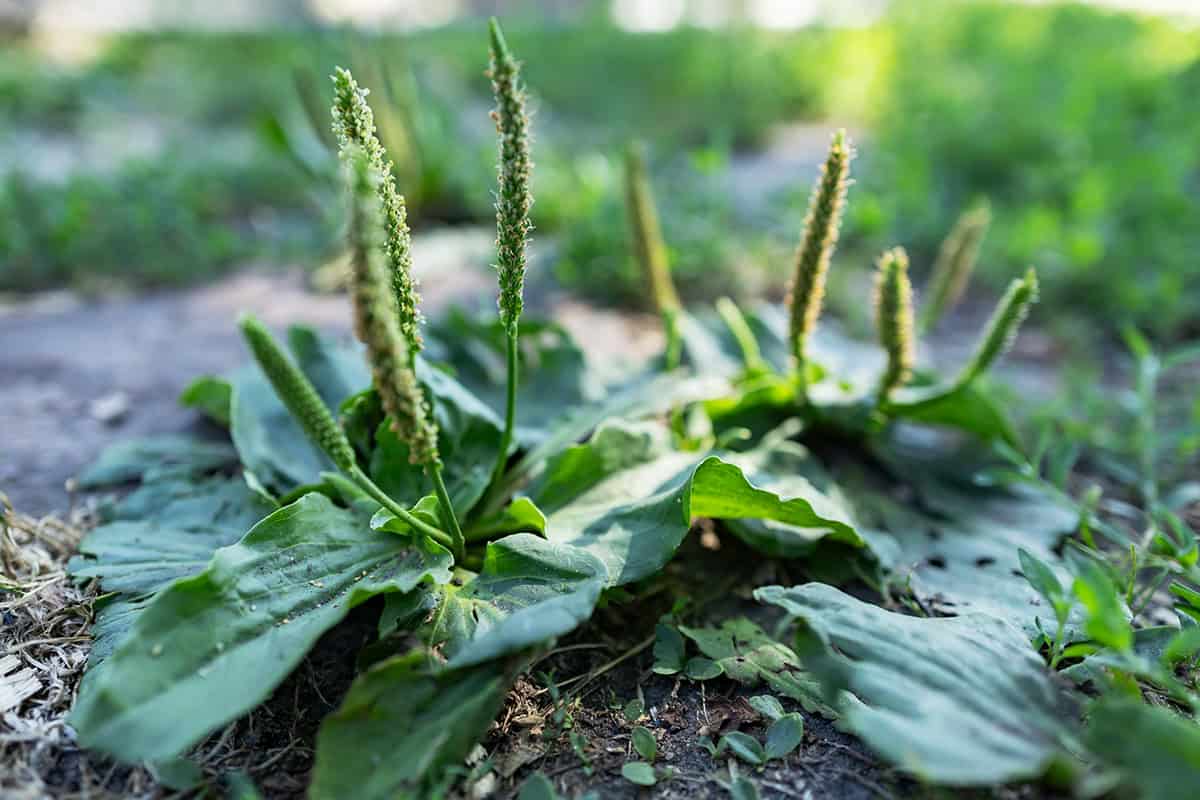
Plantain is a versatile plant with medicinal properties. It is effective against parasites and skin irritations in chickens. The leaves contain vitamins A, C, and K, promoting overall health. Plantain is resilient and grows in diverse conditions. Allow chickens to forage freely as the plant replenishes rapidly. Its presence in the run is immensely beneficial.
Purslane
Purslane is a succulent plant rich in omega-3 fatty acids. It supports healthy feather growth and skin condition. The leaves are also high in vitamins and antioxidants. Purslane grows well in warm climates and can tolerate drought. Introduce it to your chicken run for a nutritious boost. Its tangy flavor is a favorite among foraging birds.
Sweet Potato Vines
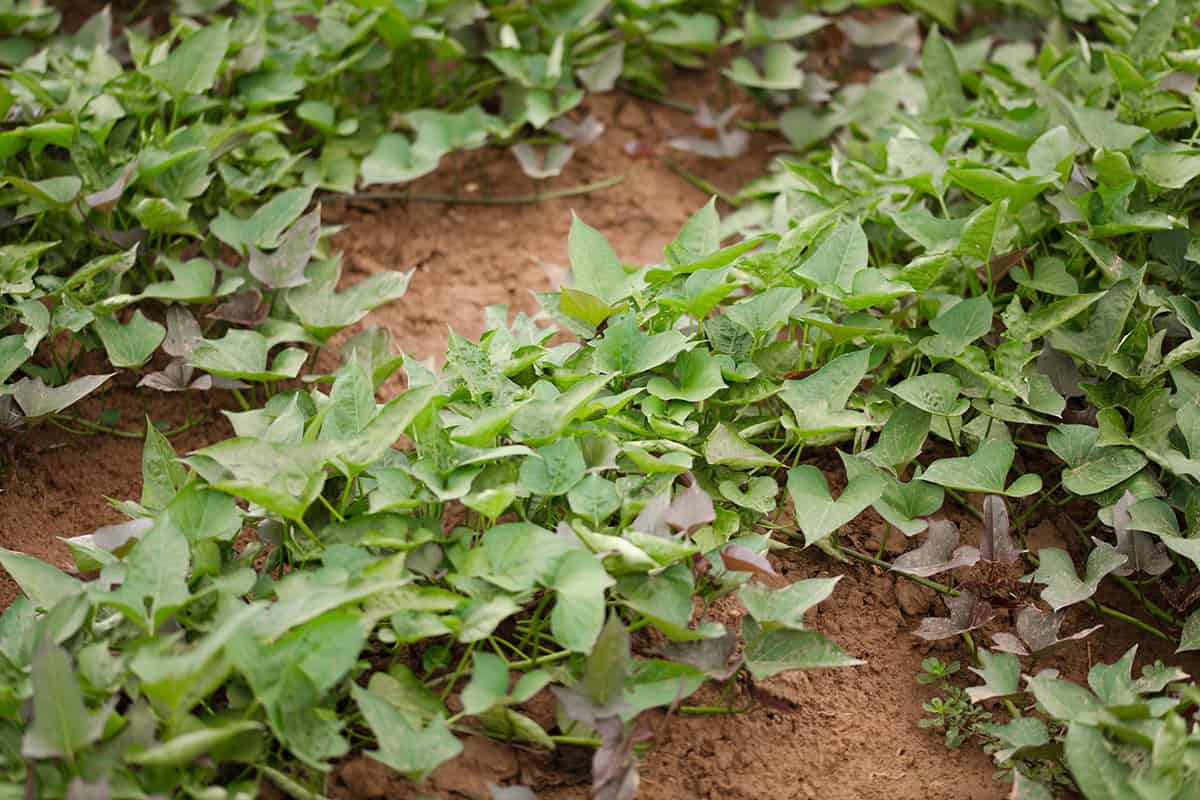
Sweet potato vines are an excellent source of energy. Chickens find the tender vines and leaves palatable. They contain beta-carotene and other essential nutrients. Sweet potato vines are easy to grow and withstand moderate grazing. As part of a balanced diet, they add variety and essential vitamins. Regulate access to avoid excessive consumption and potential digestive issues.
Turnip Greens
Turnip greens offer a wealth of nutrition, including vitamins A, C, and calcium. They support bone health and improve egg quality in chickens. The leaves are tender, making them appealing to chickens. Growing turnip greens is straightforward. They thrive in cooler weather. Provide a moderated amount to prevent dietary imbalances, ensuring your flock stays healthy and satisfied.
Medicinal & Health-Boosting Herbs
Integrating medicinal and health-boosting herbs into a chicken run can enhance the well-being and resilience of your flock. These herbs offer both preventive and curative properties, acting as natural supplements. They can assist in promoting immunity, aiding digestion, and even repelling pests.
Comfrey
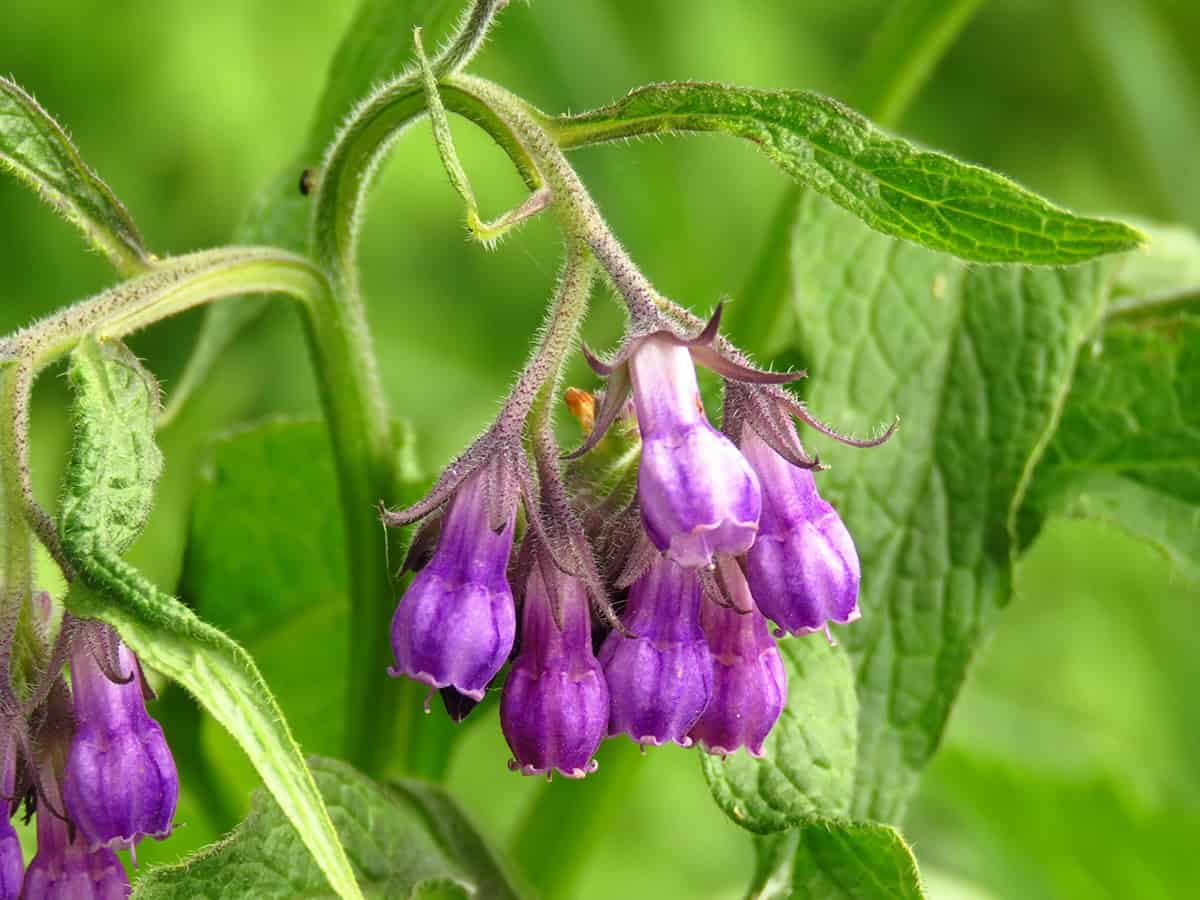
Comfrey is a robust herb with large, broad leaves. It’s rich in protein and vitamins A and C. Chickens benefit from these nutrients, supporting overall health. Comfrey can be planted inside or outside the chicken run. Its rapid growth makes it a sustainable option, rewarding both the chickens and the gardener. You should trim it regularly since it can become invasive. Offering fresh comfrey leaves to your chickens can help with digestion and tissue repair, emphasizing its role as a natural supplement.
Mint
Mint provides a refreshing aroma and several health advantages for chickens. Its essential oils can calm and cool livestock, making it a useful addition during hotter months. This herb can also help deter pests, providing a safer environment for the chickens. Plant it in pots around the run to control its spread, as mint’s vigorous growth can easily take over a garden. Chickens seem to enjoy the taste, which can enhance their appetite and general well-being.
Lemon Balm
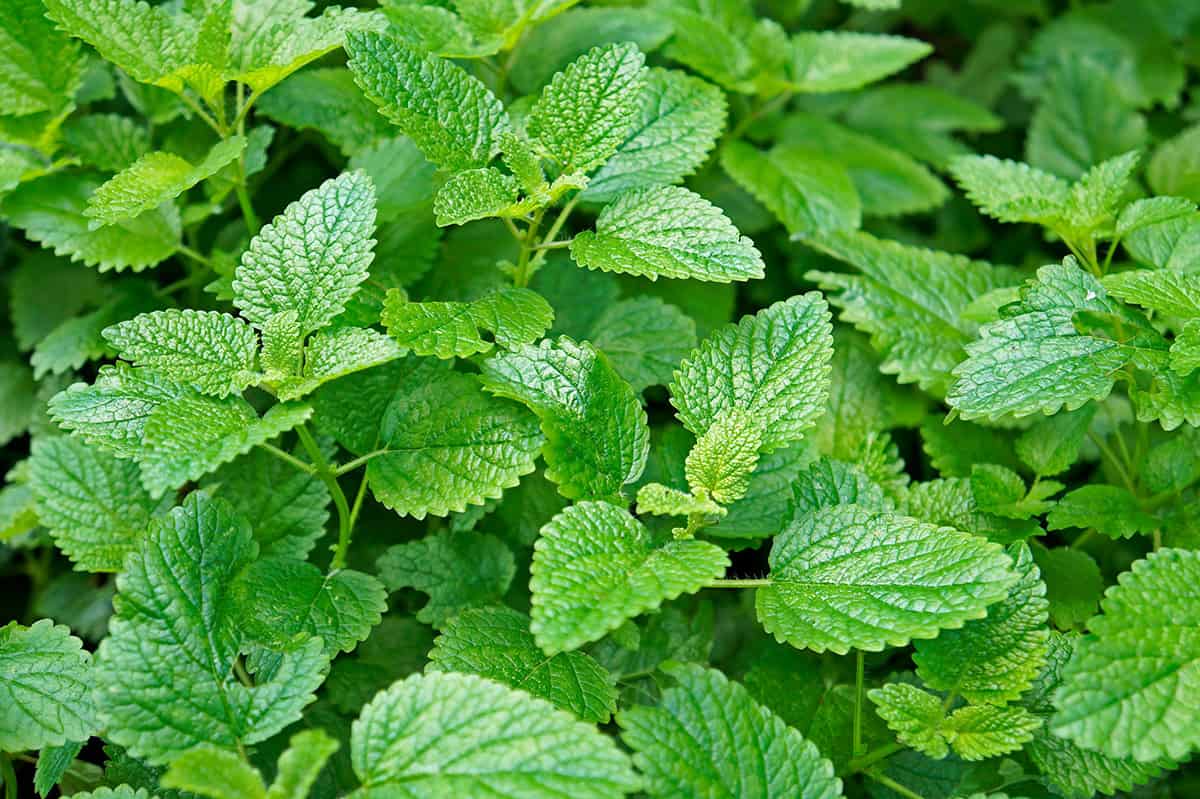
Lemon balm is a gentle herb known for its calming effects. It can reduce stress levels in chickens, especially during transportation or handling. Plant this herb around the chicken run to offer its benefits naturally. Lemon balm can also improve respiratory health due to its antiviral properties. This makes it a beneficial herb to have, particularly to strengthen the flock’s immunity during colder months.
Lavender
Lavender brings a lovely scent and serves as an excellent relaxant for chickens. Its calming properties can reduce stress within the flock, promoting a more harmonious environment. Additionally, lavender can repel insects, providing a dual advantage of relaxation and safety. Grow lavender around the borders of your run to enjoy its benefits; the flowers can also be dried and added to nesting boxes to aid in calming broody hens.
Oregano
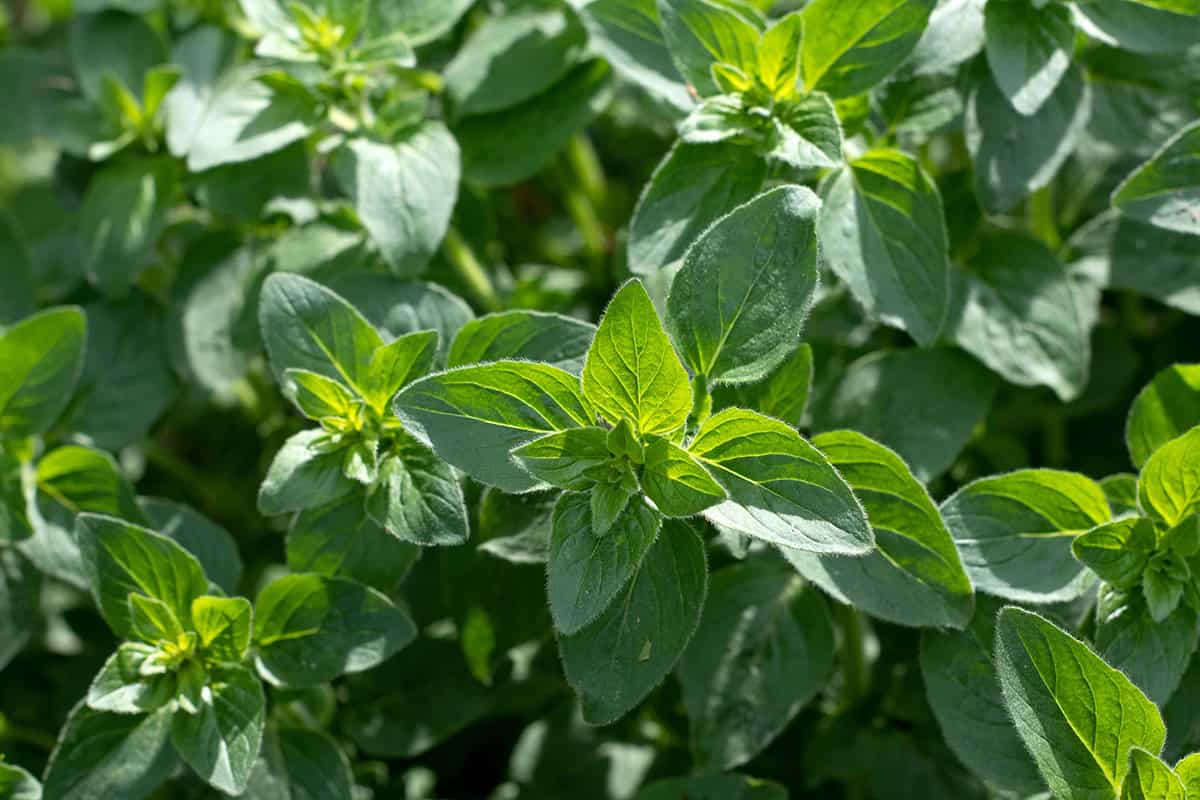
Oregano is a powerhouse herb famed for its antibiotic properties. Including oregano in your chickens’ diet can boost their immune system and fight off infections. You can feed fresh oregano or dried to your flock. It’s an excellent supplement to protect against respiratory diseases. Grow it in a sunny spot and add fresh leaves to their feed for optimal health benefits.
Sage
Sage is anti-inflammatory and antioxidant, properties valuable for chicken health. It supports digestion and improves feather quality. Plant sage where chickens can peck its leaves. Adding sage to your chickens’ environment helps keep them robust and aids in the prevention of diseases. Its ability to deter pests is an added benefit, assisting in creating a healthy run for your flock.
Yarrow
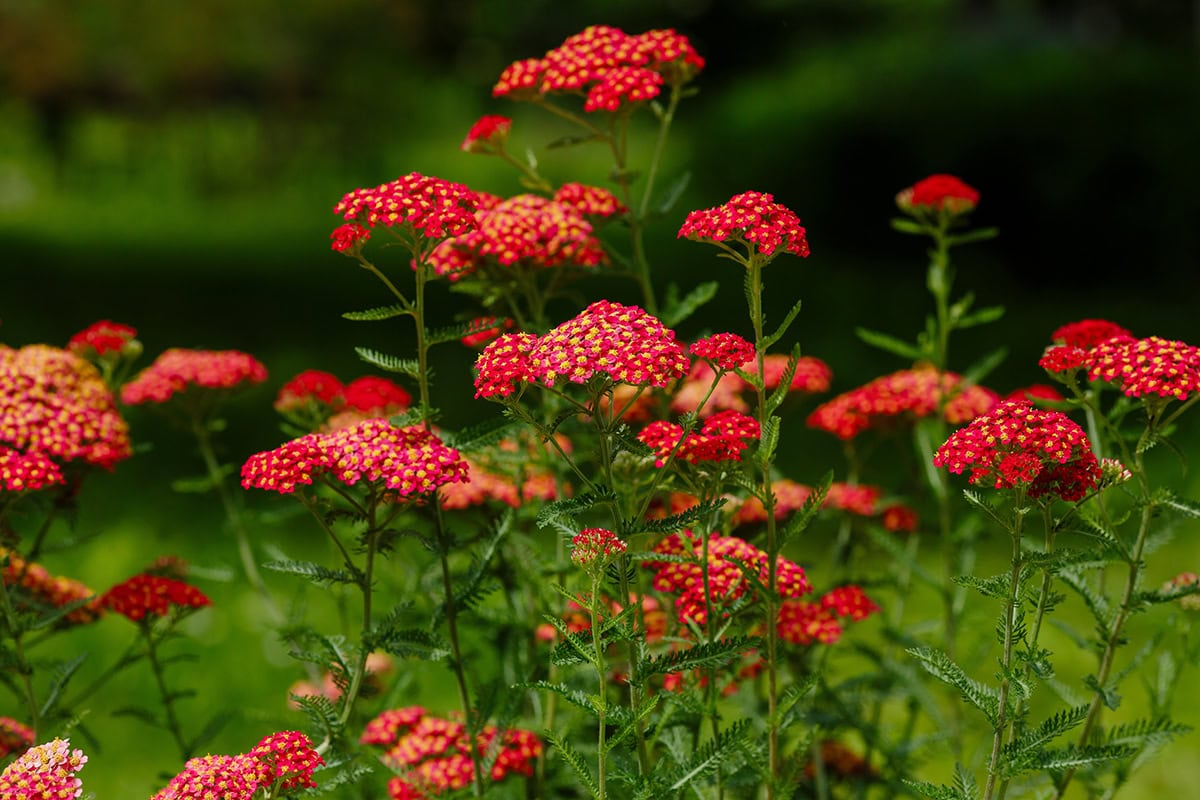
Yarrow is known for its healing and antiseptic qualities. This herb is excellent for treating wounds and insect bites. Chickens benefit from its medicinal profile, preventing infections and promoting rapid healing. Plant yarrow in your chicken run to allow for easy access. Offering dried yarrow in their nesting areas can keep bugs away and ensure a clean environment for egg production.
Hyssop
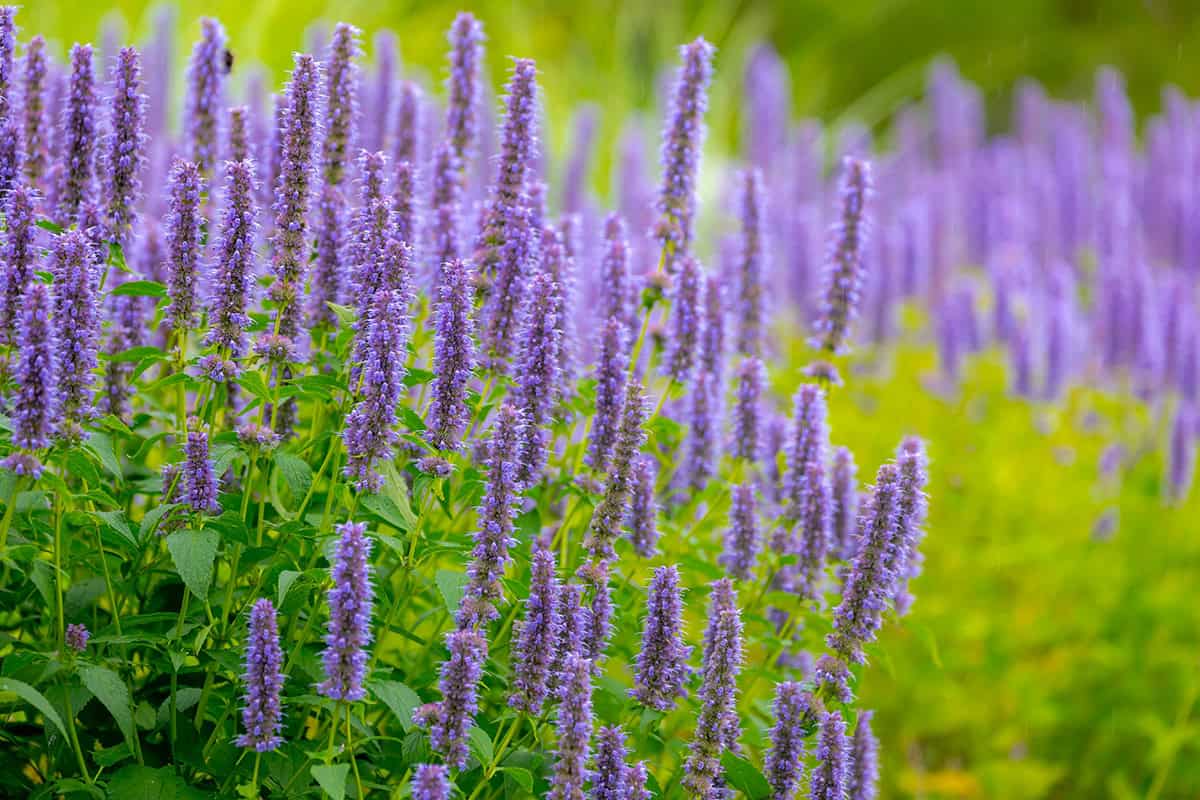
Hyssop has antimicrobial and anti-inflammatory properties. It supports respiratory health, which is crucial for a thriving flock. Incorporating hyssop into your chickens’ diet strengthens their defenses against common respiratory issues. Plant it in the garden for easy access and visual appeal. The comforting aroma also serves as a natural air freshener, contributing to a pleasant environment for both chickens and caretakers.
Forage & Enrichment Plants
In a chicken run, certain plants provide essential nutrients and stimulation for your flock. They enhance their environment and also improve the health of the birds. Below are some recommended options to consider.
Sunflower
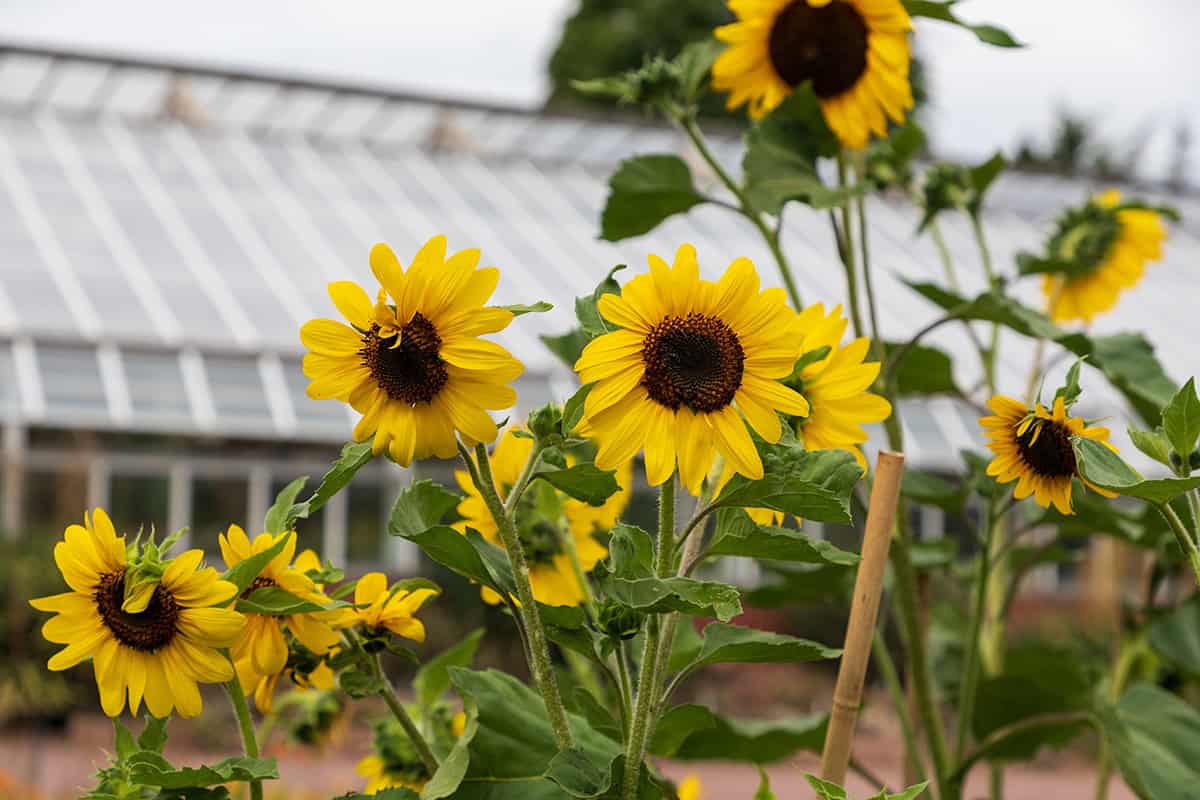
Sunflowers are a great addition to any chicken run. Their seeds are a rich source of protein and healthy fats for chickens. You can simply let them grow tall, and the chickens will enjoy pecking at the seeds when they reach maturity. The plants themselves can reach impressive heights, offering shade and cover. Sunflowers are also easy to grow, requiring minimal care. Once established, they are drought-tolerant and can thrive in many soil types.
Calendula
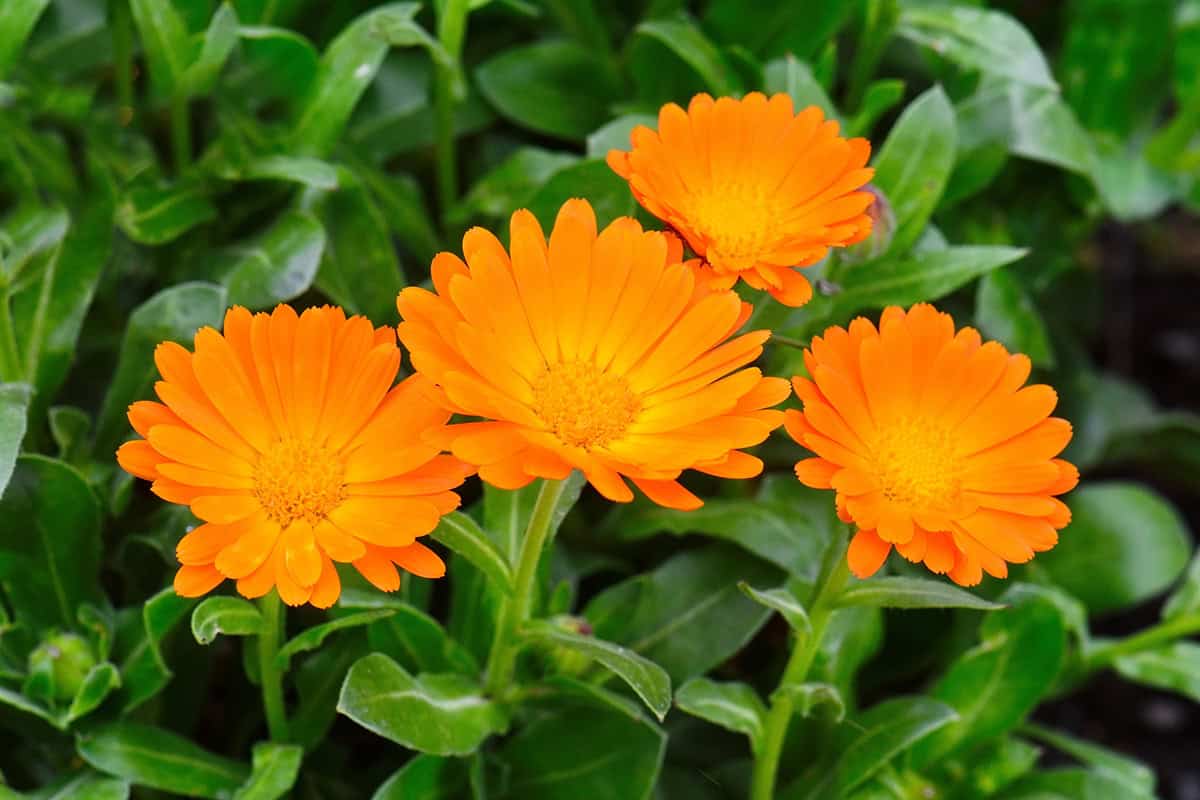
Calendula, known for its bright orange flowers, is beneficial to chickens. Its petals are edible and can be a nutritious treat for them. This plant has anti-inflammatory properties and supports the immune system. Calendula grows best in well-drained soil with a good amount of sunlight. You can harvest the flowers regularly to encourage more blooms. Its colorful flowers can also attract beneficial insects, enhancing the ecology of the run.
Borage
Borage is another excellent choice for a chicken run. The plant is renowned for its blue star-shaped flowers and is packed with essential nutrients. Chickens are fond of its leaves, which contain calcium and potassium. Borage is easy to cultivate, flourishing in most types of soil. Its flowers attract pollinators, helping to support other plants in the garden. It can self-seed once established, requiring little intervention.
Chamomile
Chamomile offers numerous benefits for chickens. It is gentle on their systems and has calming effects. This plant’s flowers can be consumed by the birds or used in their bedding as a natural insect repellent. Chamomile prefers sunny locations and grows well in light, fertile soil. The pleasant aroma and aesthetic appeal of the flowers also make it a delightful addition to the run.
Bee Balm (Monarda)
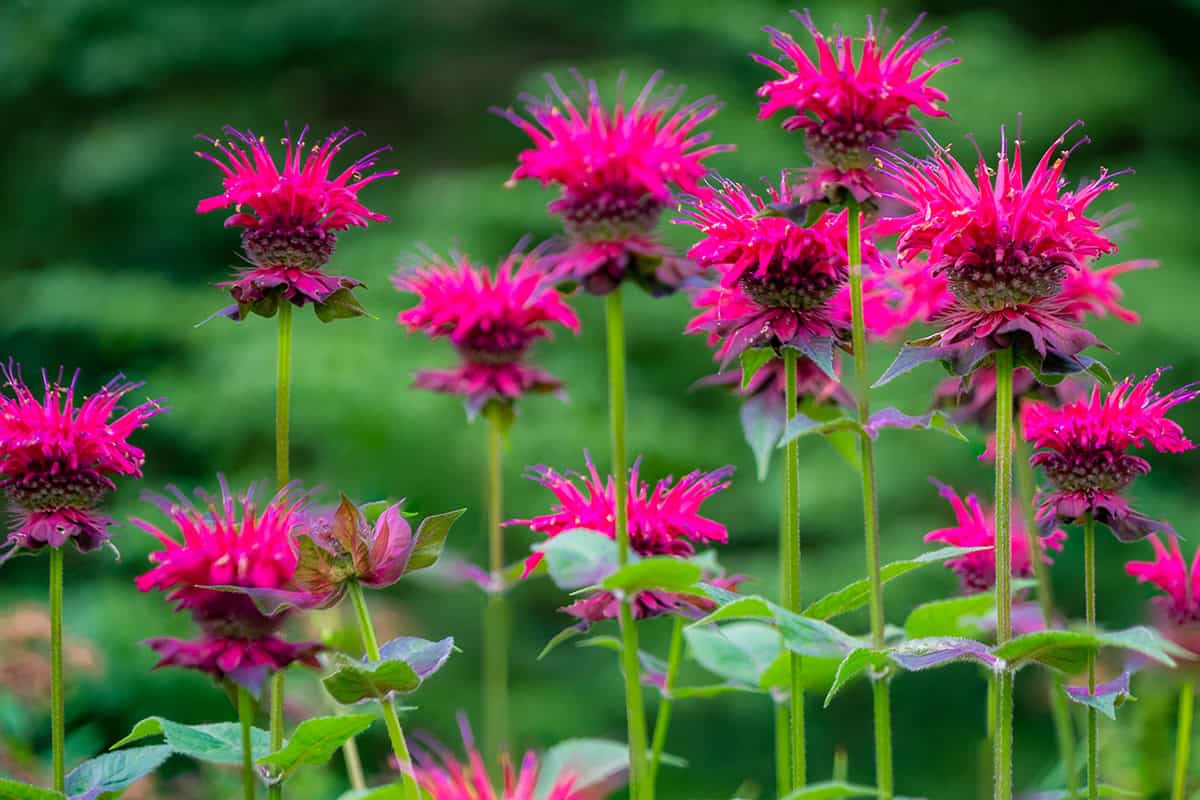
Bee Balm, or Monarda, is advantageous for chickens and their keepers. This plant attracts insects such as bees and butterflies to the area. Chickens enjoy nibbling on its leaves, which can help in reducing boredom and pecking behavior. Bee Balm thrives in moist soil and full sun, making it relatively easy to grow. It adds vibrant color and visual interest with its beautiful blossoms.
Marigold
Marigolds are popular in chicken runs for their pest-repelling properties. The flowers deter unwanted insects, promoting a healthier environment for your flock. Chickens enjoy eating the petals, which can enhance the color of their yolks. Marigolds are hardy, growing well in various soil conditions. They require regular deadheading to encourage continual blooming, providing beauty and function in the run.
Fennel
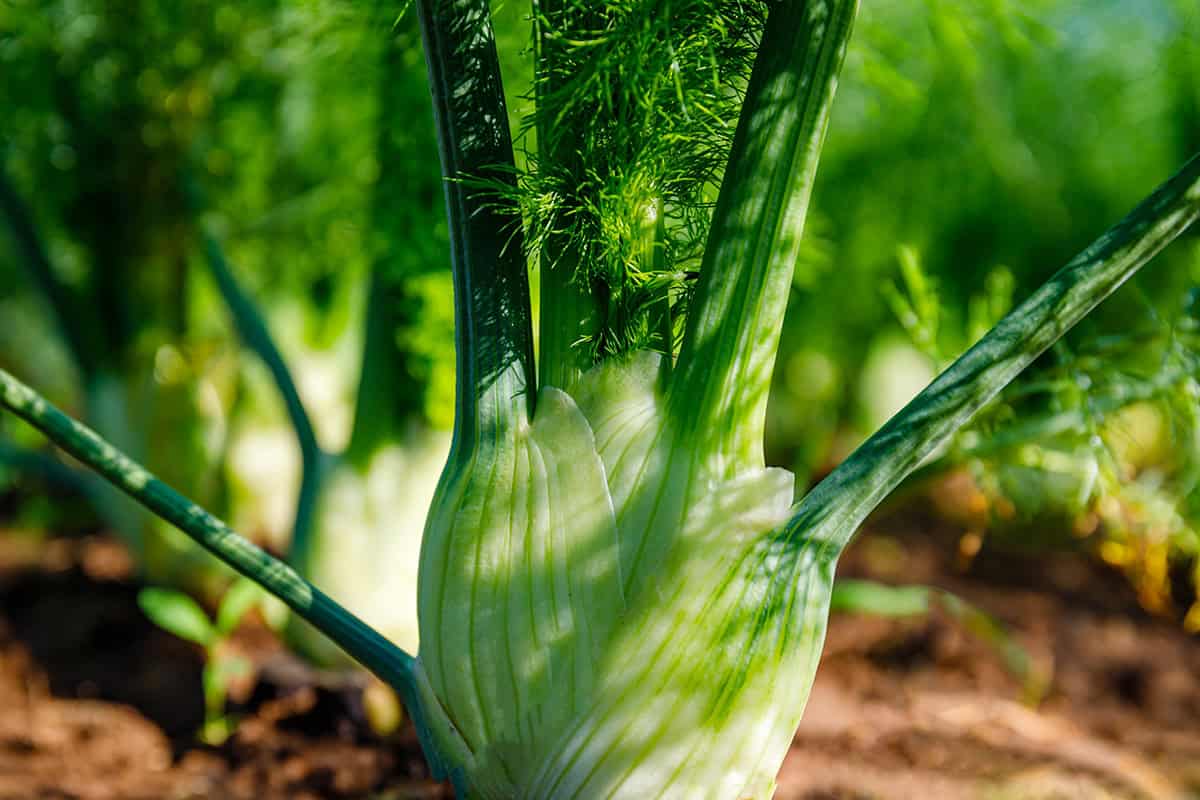
Fennel is excellent for improving the digestion of chickens. Its seeds and fronds can be given to the birds as a treat. This plant has a distinctive anise flavor that chickens seem to enjoy. Fennel prefers loamy soil and a sunny spot to grow optimally. Its tall stalks provide vertical interest and can act as a natural windbreak in your garden.
Strawberry Plants
Strawberry plants are a delightful treat for chickens. They relish the fruits, and the leaves can serve as a snack. Plant these in well-drained soil with adequate sunlight for best results. Strawberries can be grown in containers or directly in the ground, making them versatile. Regular trimming can help manage the plant size and maximize fruit production.
Shade & Shelter Plants
Plants offer shade and shelter in a chicken run, enhancing the birds’ comfort. Carefully chosen species provide protection while improving the aesthetics of the space. The highlighted options below are ideal for balancing functional and visual appeal.
Mulberry Tree
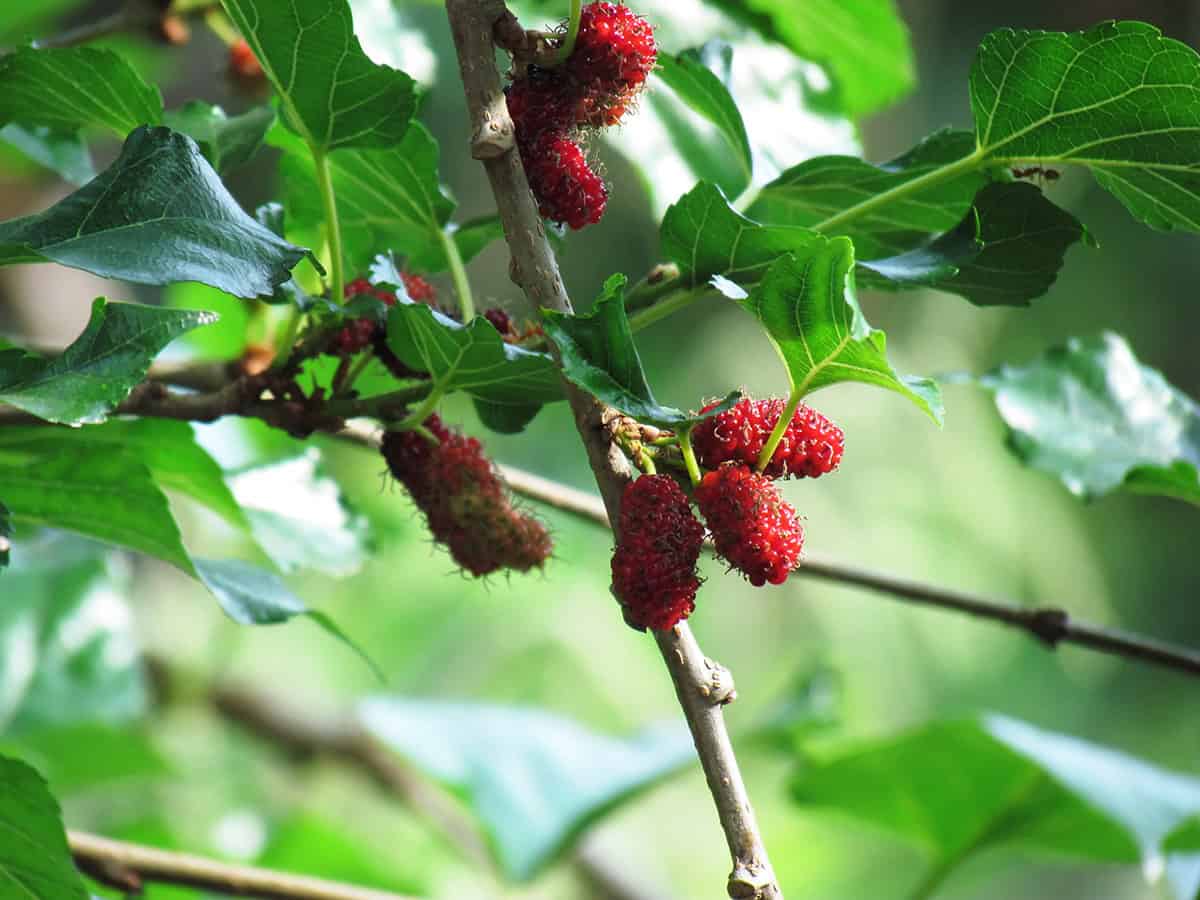
Mulberry trees thrive in sunlight and can grow quickly, offering ample shade for chickens. They produce delicious berries that chickens love. Plant them in well-draining soil to ensure healthy growth. Prune regularly to maintain structure and accessibility. While the leaves provide shade, the berries add a nutrition boost to the chickens’ diet. Locate these non-toxic trees along the perimeter to maximize shade and minimize garden clutter. They are drought-resistant, making them easy to manage.
Corn

Corn plants provide excellent shelter with tall, dense stalks. They double as a food source when the cobs mature. Plant them in rows to create natural barriers. Their quick growth makes them ideal for temporary shade during hotter months. To encourage robust stalks, ensure adequate spacing and water them regularly. Corn plants thrive in sunlit areas. The foliage is sturdy, offering refuge from predators or harsh weather. Corn plants add a seasonal change, refreshing the run’s landscape.
Bamboo (Non-Invasive Clumping Variety)
Clumping bamboo offers dense cover without overwhelming your yard. Ideal for privacy screens, it quickly provides substantial shelter. Choose non-invasive varieties to prevent uncontrolled spread. Plant in well-drained soil exposed to full sun or partial shade. Maintain their size through regular trimming. Bamboo’s vertical growth adds texture to the landscape and protection from inclement weather. Their thick foliage is perfect for chickens to hide under and feel secure.
Elderberry
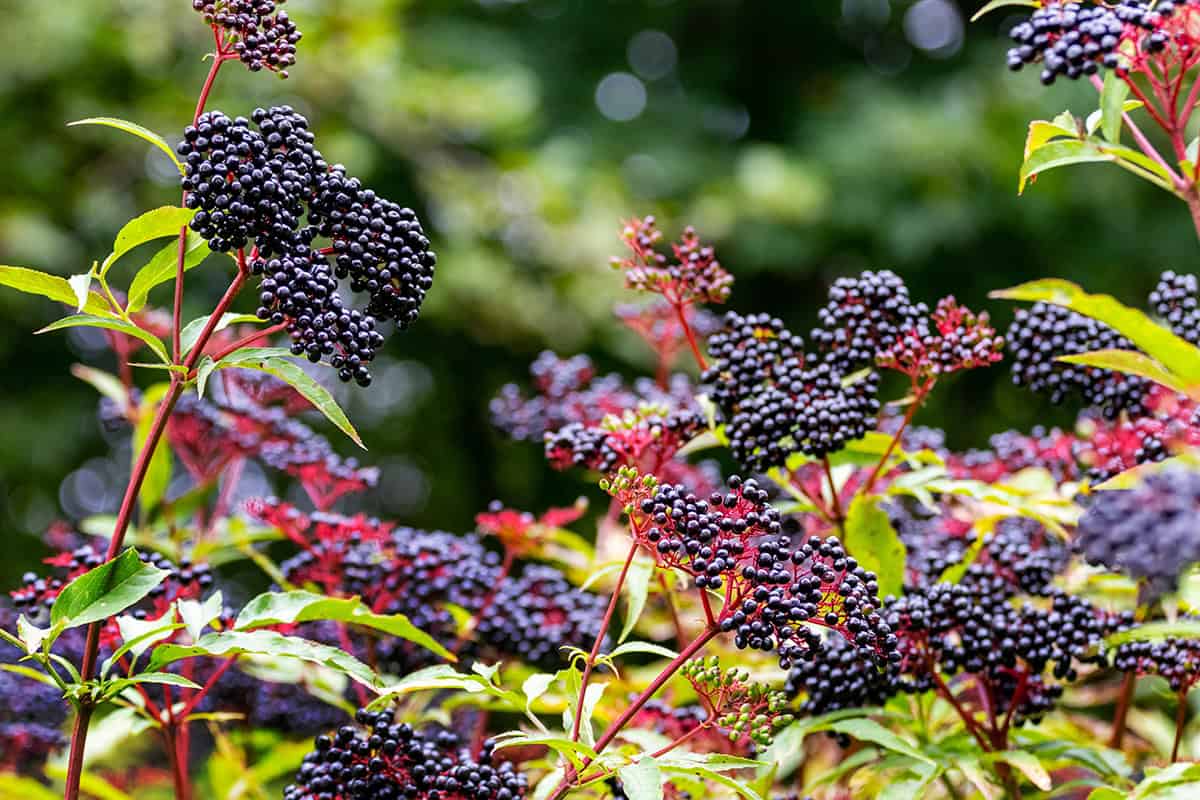
Elderberry plants grow best in moist, well-drained soil. They offer seasonal shade and striking flowers. Beyond shade, their berries provide chickens with a treat. Opt for spaces with sun to partial shade. Trim these moderately tall shrubs to encourage lateral growth. An elderberry shrub adds visual interest and practical use. Its branches form an efficient shield from direct sunlight. Chickens appreciate leisurely afternoons beneath its cover.
Blackberry Bush (Thornless Varieties)
Thornless blackberry bushes offer shade without the hassle of sharp thorns. Plant them along farm borders to cut on wind and present more shade. The bushes produce berries for the chickens’ enjoyment. Choose slightly acidic soil that drains well, and position these bushes in full sun. Regular pruning ensures the growth stays manageable. As the bushes mature, they offer a thick canopy, giving a cool retreat during midday heat.
Grapevine
Grapevines provide shade with sprawling foliage when grown on a trellis or pergola. Grapes offer a tasty snack, while large leaves shade the ground. Ensure the vine receives full sun and grows in well-drained soil. Prune regularly to manage size and shape. A well-established grapevine adds elegance with its cascading branches. They create a cooler microclimate underneath for chickens seeking shade.
Fig Tree
Fig trees are easy to grow and maintain, providing wide canopies. Their shade is perfect for roosting chickens. Fertile, well-drained soil is ideal for these trees. Harvest figs for both chickens and humans. Figs grow best in direct sunlight but tolerate some shade. A fig tree enhances the landscape with its glossy leaves and nutritious fruit. Its broad coverage offers reprieve from heat, creating a relaxing environment.
Jerusalem Artichoke
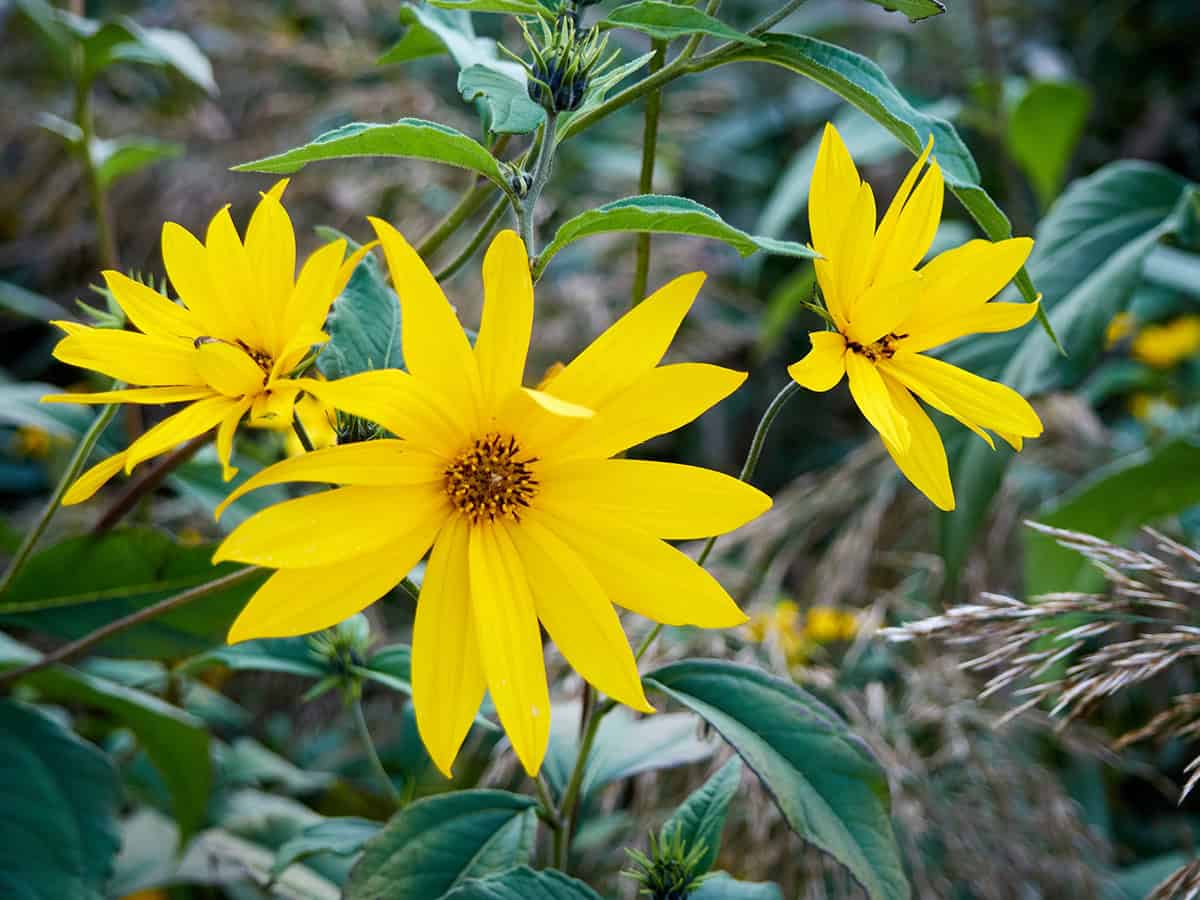
Jerusalem artichokes are tall, making them suitable for shade. Their tubers can be consumed by chickens. These perennial plants thrive in full sun, requiring well-drained soil. Their dense growth creates helpful windbreaks and natural screens. With their substantial height, these artichokes make an effective barrier. Tall flowers offer a splash of color while the tubers add a dietary treat. Regular management is minimal, needing only occasional thinning to maintain order.
